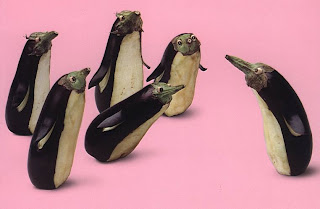David Brooks has an interesting
column on the way some people use cellphones and texting to create a fluid market in sexual hookups. The data come from
New York magazine's sex diaries, submitted by readers.
Brooks' main point is that in courtship in days gone by social institutions provided a set of "guardrails" to help people sensibly get from short-term attraction to long-term commitment. He concludes that it is a loss that young people today do not have such guardrails.
I mostly agree with Brooks. I disagree on two points of emphasis.
First, most young people who court in school, with friends around and families in consulting distance, do in fact have help and guardrails. Some (not most) engage in hookups, especially in the first flush of freedom from home. But most leave that behind when looking for a serious mate.
Second, I don't think the sex diarists submitting their sad erotic adventures to
New York magazine readers are young people courting. I think they are likely to be the people who are left over after the rest of their cohort finished their serious courtships, guardrails and all. They are left over, in part,
because they did not court when they had the social structure to support them, but instead approached sex as just another way to spend the evening, disconnected from love, marriage, and parenthood.




